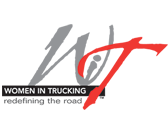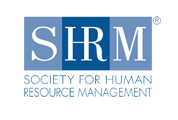 Carrier Screening – Presentation by Bob Skane to the Transportation & Logistics Council
Carrier Screening – Presentation by Bob Skane to the Transportation & Logistics Council
Carrier Screening By Brokers-
Safety rating– Using carriers with an unsatisfactory rating exposes both shipper and broker to lawsuit due to negligence.
Insurance– Broker must be named as a certificate holder in order for their contingency policy to valid. Ask the insurance company about exceptions! Carriers reduce their insurance costs by limiting there cargo coverage by region, commodity and circumstances.
Current Operating Authority
Signed Contract- Outlines responsibilities of each party. Prevents carriers from claiming “release values” for cargo. Ensures that carrier can only look to broker for compensation.
Carrier On-Time Percentage– Weed out underperformers and focus on reliable companies. Recognize top performers with “carrier of the month” plaque and gifts. Develop more presence with carriers and gain access to more equipment.
Internet-based Monitoring Services-(eg. Carrier 411) to track changes in carriers’ insurance status. Also, alerts us if a carrier loses their authority. There have been times when we have informed a carrier that their insurance was cancelled and they were unaware!
Carrier Watchdog– Brokers report on fraudulent or harmful behavior by carriers. Can help other brokers avoid carriers that double broker hijack freight etc…
What is the name on the door of your Truck? When we dispatch drivers we ask the drivers this question to ensure that the load is not being double brokered.
Choosing an Intermediary – Choosing the wrong broker can have substantial repercussions for the shipper:
– Brokers carry a large fiduciary responsibility. If they default on carrier payments there will likely be legal action directed at the shipper.
– If the broker uses carriers with an unsatisfactory rating and someone gets hurt the shipper may get sued.
– If the broker is not verifying carriers are fully insured a cargo claim may go unpaid.
Who you are working with?
Length of time in business (What is their MC?)
How long has current management been in place?
Who are the principals? Have they owned/run any other brokerages?
Credit Rating– Gold Book. D&B.
Check service references. Do claims get satisfied?
Check their website.- What is their vision/mission statement? – Are they Transportation Intermediaries Association members?
Are they P3 Partners? Platinum Performance Program. A contractual best practices agreement for third parties created by the TIA.
All Brokers are not the same!
-What is their target market? Does it fit with your needs?
– Pricing? Service level? (What is the cost of a service failure?) Equipment Types? Volume? Region?
– How many carriers have they contracted with? Are they large enough to service you? Are they small enough to make you feel important?
– Have they been recognized with any industry awards or accolades?
– Does the broker carry a contingency insurance policy? This policy can protect you should the carrier’s policy default.
– Are all employees helpful when you call? What if your main contact is out of the office?
– Do all employees present themselves professionally when you call? These folks will be calling your customers!!!!
– Spot check compliance information. Request a fax of carrier insurance certificate. Review their carrier contract to ensure it provides sufficient protection.








